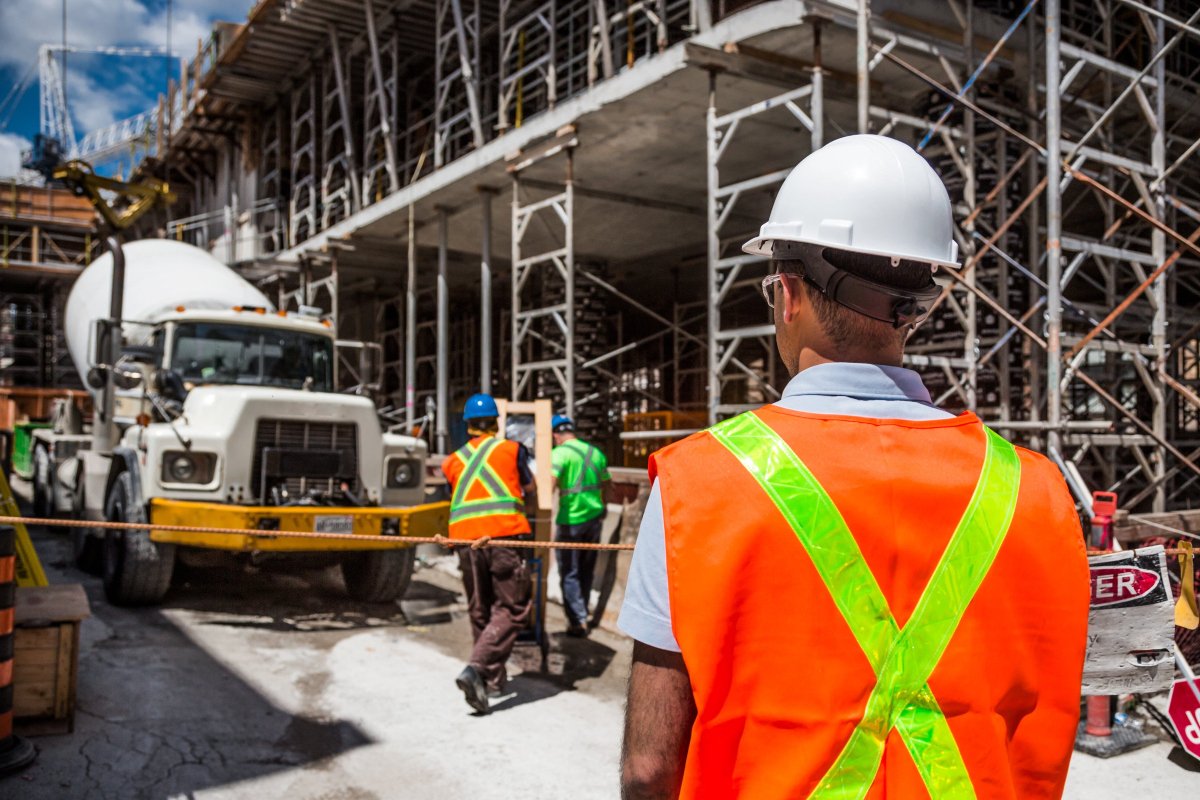As of midnight 23 March, British Prime Minister Boris Johnson has declared a UK-wide lockdown. All non-essential businesses are being closed to contain the coronavirus outbreak. It is clear that this is too little too late from a big business government that places profits ahead of human lives.
Nonetheless, it is now a question of life and death for hundreds of thousands of people that this lockdown is enforced.
For the past week Socialist Appeal has been running a ‘Name And Shame’ campaign on social media to expose those bosses putting profits ahead of people’s health. To protect their profits, businesses all over the country are trying to wriggle out of the government’s restrictions, as some of these examples show.
We publish below some of the responses we have received so far, which illustrate why the bosses cannot be trusted to go into lockdown. Only the working class, which has the power to shutdown the whole of production, can really enforce this lockdown.
Continue to send in your reports to contact@socialist.net, or send us a message on Twitter to @socialist_app, and we will publish your stories anonymously.
Before the lockdown took effect, it was clear that a lot of businesses were making money hand over fist in the current situation.
Some are making huge profits out of this crisis. For the supermarket chains, the coronavirus is like all their Christmases come at once…literally. One worker at a supermarket told us that at Christmas a typical store might bring in around £2,000 extra cash compared to a regular day. Recently, however, the store where this person works had been bringing in an extra £10,000 to £20,000 a day!
It could be argued that at least these supermarkets provide an ‘essential’ service and have to stay open. Argos, owned by Sainsbury’s, certainly does not fit into that category. The bosses, however, would beg to differ. This is what one Argos worker told us:
“We are being treated like scum at the moment. Our holidays have been cancelled, some of us are working 10-14 days in a row before days off. Instead of reducing hours we are pulling in extra staff. We received one 500ml bottle of hand sanitizer for the whole team of 40+. To top it off we are being told that Sainsbury’s [the owners of Argos] are fighting for Argos to be classed as essential so we do not close on a lockdown.”
It’s not just Argos who have refused to close their doors. After the government announced it would help pay workers’ wages, many perhaps thought their bosses would do the sensible thing and shut up shop to avoid the spread of the disease. Not Mountain Warehouse, who seemed to think that flogging their budget outdoor gear is more important than human life. As one worker told us:
“A lot of shops started shutting down [on the day of the government’s announcement]. Loads more on Saturday started closing their doors, but not us! In fact we had been given no plan for closing at all. To be eligible for SSP [statutory sick pay] we would have to either have symptoms or have a housemate with symptoms. Basically ‘work til you're sick!’, even though Mountain Warehouse now have the means to use the government support to pay their staff to stay home! I can't believe how irresponsible that is.”
The same day the company announced it was considering making thousands of workers redundant.
Despite the government’s measures to ensure workers are paid whilst furloughed, this isn’t going to help workers on zero-hour contracts or those bogusly self-employed. And as one Timpsons worker pointed out to us, those workers who depend on tips, gratuities and bonuses are going to face extreme hardship:
“Everyone who has worked for the company for less than 9 months has been dismissed, from yesterday, I gather. Like most blue collar workers we are still working but they are planning a ‘hibernation’ where most shops will close – subject to government instruction – for a period of weeks or months. This will amount to half pay, as half our wages are based on a bonus scheme determined by the shop’s turnover. We are asking our landlord for some kind of rent arrangement. She hasn't replied yet.”
While the bosses can ‘hibernate’ through this crisis – living off the profits squeezed from workers in the past – there can be no easy ‘hibernation’ for the workers themselves.
When is a café not a café?
 CeX bosses smelled the chance to make profits by selling home entertainment during this crisis / Image: fair use
CeX bosses smelled the chance to make profits by selling home entertainment during this crisis / Image: fair use
When the government finally announced that cafés, bars and restaurants were to shut on 20 March, workers in some establishments were astonished to find that their bosses didn’t believe this applied to them!
A case in point were the workers at the Blackbird chain of cafés in London. Workers who were being told to come in refused to accept this and replied to the bosses: “You are a chain of cafes. You have been told to shut down by the government. I can and will report you.”
The chain’s owners pleaded, however, that they didn’t have to shut because they were actually a bakery – despite advertising their shops as ‘cafés’ on their website! The pressure of the workers was vital in forcing the company to shut down.
This isn’t the only company where workers successfully organised to close business. At CeX, the second-hand computer games retailer, the bosses clearly smelled the chance to make profits by selling home entertainment to people cooped up at home during this crisis.
We have received reports from workers at the company that not only did the company decide to boost its profits by price gouging (we are informed the price of a switch console was raised by £60), but it told staff that they were staying open and that staff wouldn’t be paid if the company closed.
Following an explosion of outrage from workers, the company was forced to backtrack, saying that they would close except for deliveries, with staff urged to come in voluntarily.
This is a clear victory for CeX workers. But it still shows how the overriding concern of these companies is profit not public health. We ask ourselves: will the coronavirus ‘voluntarily’ leave uninfected these CeX staff and those that they come into contact with on their commute?
Across the board, bosses have done everything they can to make workers shoulder the burden of this crisis. At Liverpool Cineworld cinema, for example, more than 50 staff were laid off whilst new staff kept their jobs. What was the logic behind such a move? The newer staff are not entitled to sick leave until they have worked for 18 months.
In another case, the bosses at Coylumbridge Hotel Aviemore, owned by Britannia Hotels, not only terminated workers’ contracts – they simultaneously evicted those workers who were currently accommodated at the hotel.
The bosses subsequently reversed their decision, claiming that the sackings and evictions were an ‘admin error’. We leave it up to the reader to make up their own minds as to whether this was really the case, or if the real error was in fact the bosses’ underestimation of the rage their callous actions would provoke.
The scourge of outsourcing
It is not just private businesses that have been riding roughshod over workers’ lives. Government employees have also written in to us to complain about how they have been treated.
A worker at the Environment Agency wrote to us on 19 March about how temporary agency staff are being completely trampled on. More urgently than ever, this crisis is posing the need for an end to privatisation and outsourcing:
“As an agency worker on a rolling temporary contract, while colleagues on permanent contracts are being asked to work from home on work laptops to avoid spreading the virus, us temporary workers that are only deemed worthy of old desktops are being told that we must continue coming into the office for the foreseeable future, risking the virus daily, and worse risking passing the virus on to vulnerable family members at home. Worse still we have been told that were the office to be closed fully then we will have our contracts suspended without a further thought!”
Institutions of higher learning have also shown that they put wealth ahead of health. For weeks now, students in most universities have been told to work from home. At least this is what undergraduates were told. In a number of institutions though, postdoc research students were still being told to come in. It is easy to see why: research is where the money is.
Whilst universities understand the risk of infection, they also understand the risk to their budgets. The coronavirus has shown the logical end point of the marketisation of education: institutions put money ahead of the lives of workers, their families and the public.
Shut the sites!
 The construction industry is going to become a key battleground against the Tory government / Image: fair use
The construction industry is going to become a key battleground against the Tory government / Image: fair use
Now the government has announced its lockdown, the construction industry is going to become a key battleground. Before the lockdown, we received the following anonymous message from a construction worker in the industry:
“Yesterday [Weds 18 March] we received a message from upper management that we needed to keep coming in to work. Meanwhile, management are working from home.
“We were told that we're at low risk of infection as we work outdoors, often far away from each other. However, we all share transport and welfare facilities. There can be 15 of us on site sharing one toilet in a portacabin, and this is before other external contractors. When illness goes round at work, they always spread among site staff first because of the conditions we work in. We literally name our yearly flus after the site they originated in. There’s no science behind the idea that we, the diggers, are less likely to infect others.
“We’ve only been deemed a ‘lower infection risk’ because it's more convenient for the business. We can’t work from home, so they need us to come in. Most of the site workers are younger and pretty healthy because of the physical nature of our job. [...] We were told that there was no point in us self isolating. If we got the virus we were certain to spread it anyway because most of us live in shared ‘diggers houses’ of 6-8 people. You couldn’t make it up.
“Whose fault is it that we live in overcrowded housing anyway? We’d all be able to afford apartments if we were paid enough. Anyway, this was proved in practice when I came in to work this morning to find out that half the site teams had to be stood down.
“Overnight a whole bunch of people had developed a cough, and one person had a fever. If our work had been shut down a week ago when it was clear that this was developing into a crisis, this may not have happened.”
Construction sites are open as usual across the UK, this photo was taken twenty minutes ago on a site at Waterloo.
— Dan Dobson (@DanJDobson) March 23, 2020
Contractors are refusing to shut sites until the Gov force them so they dont fall foul of any contractual clauses. #COVIDー19 #construction #ShutTheSites pic.twitter.com/ydAYVw8lUS
We received another message from an electrician in Barnsley yesterday, the day the lockdown was announced, saying that workers had been given no extra safety equipment and had just been told to wash their hands more.
Construction companies have been making it clear to their workers that they would not be shutting down to prevent the spread of the virus until forced to by the government. Why? Because to do so would put them in breach of contract and potentially cost money. Again: profit was being put before our lives.
But at the same time, these companies were putting pressure on the government not to order them to close. According to Building magazine – which serves the construction industry – on 17 March: “construction leaders wrote to the prime minister and chancellor urging them to do everything they can to keep sites open for as long as possible – or face having to bail out the industry on an unprecedented scale.” This is all these parasites care about: profit.
taken today in the UK. Why are construction workers still working? They come from all over the country, stay in hotels, then go back home, taking any virus with them, in all directions. This isn’t safe. @BorisJohnson needs to close these sites and help the self employed ??? pic.twitter.com/wf3knTdhI7
— Pam Hill (@PamHill46270253) March 24, 2020
As usual, the Tory Party can always be guaranteed to lend a sympathetic ear to big business. And today Michael Gove has said that big construction sites should remain open, but that workers at those sites should observe social distancing! We are left asking ourselves: how much experience has Gove had of how construction sites actually work?
Abandoned by the government and their bosses, it is up to the workers to shut the sites. The trade union leaders must get off their knees to make sure this happens.
Working in the lockdown
Since the lockdown was announced last night, it has been shown clearly that the bosses intend to make workers pay for this measure.
Wetherspoons owner Tim Martin has announced that his staff will not be paid during the shutdown – and if they don’t like it, he suggests that they should try and find a job in a supermarket!
While the #COVID19 crisis brings out the best in our communities, it also shows bad bosses like Tim Martin of Wetherspoons for who they really are – he has left 40k workers without pay
— Fire Brigades Union (@fbunational) March 24, 2020
Solidarity with @SpoonStrike workers. You deserve full pay ✊#SpoonStrike https://t.co/9iq3VZbmyW
Mike Ashley, the infamous owner of Sports Direct, meanwhile, tried to plead that his stores fall under the category of ‘essential services’. After all, people will still need to exercise during the lockdown, and where will they buy their tracksuits?
From Mike Ashley to Tim Martin, we will remember those bosses who forced us to work and put our health at risk for the sake of their profits. We hope the public will support us. #wetherspoons #SportsDirectShame https://t.co/rxNW4L4NAe
— Unite Hospitality (@FairHospitality) March 24, 2020
Due to a fierce backlash from working people – who understand that it is their lives and the lives of their loved ones that are being put at risk – the company was forced to backtrack.
In the coming days, rich parasites like Tim Martin, Mike Ashley, the construction bosses and others will try to keep their companies going, attempting to get away with murder. Their only imperative is making money.
It is working-class people who will continue to pay for their recklessness with our lives.
The Italian workers have shown the way, with a series of strikes aimed at shutting down production, culminating in a planned general strike in Lombardy, where the worst of the epidemic is concentrated.
The profit motive of the bosses will continue to cost lives. The organised power of the working class can stop them.
As the lockdown unfolds, we will continue to publish anonymous stories of bosses putting profit before lives on Facebook and Twitter, in an effort to name and shame the callous capitalists. To send us your story, write to contact@socialist.net or direct message us on Twitter at @socialist_app.

